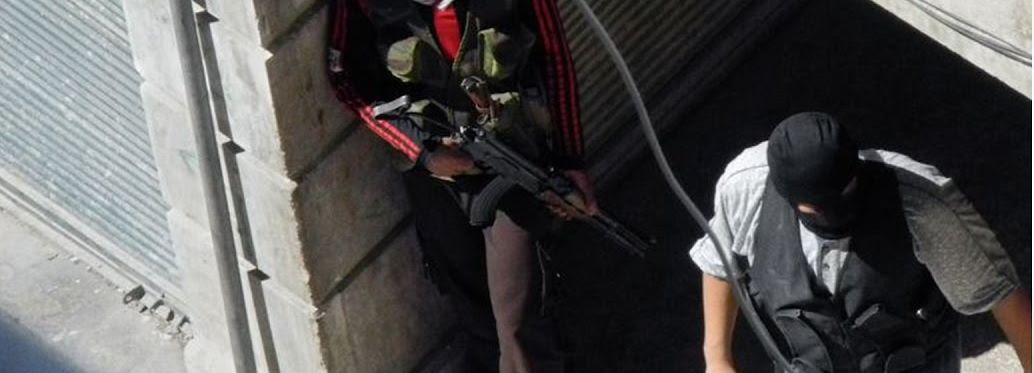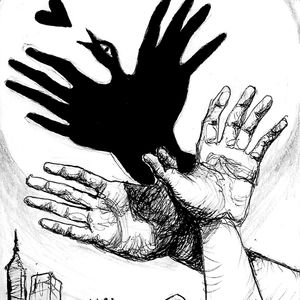Syria to Greece to Sweden: Short Films Screening and Discussion
Up to Free for members

Syria to Greece to Sweden: Short Films Screening and Discussion
In this eighth event in our ongoing film and discussion series focusing on countries where asylum seekers in the US are coming from to benefit The Solidarity Room Project (facebook.com/Solidarity-Room-Project-939216439761932), we have selected a handful of short films that illustrate pieces of the Syrian migrant experience.
WHAT: Short Films Screening and Discussion
WHERE: 136 Lawrence St, Apt 2A, Brooklyn, NY (between Willoughby and Fulton)
WHEN: Wednesday, Jan 22nd 7pm door, 7:30pm films start
$5 donation at the door, beverages and snacks available for extra donation.
If you have any film suggestions for the series, or want to donate, let us know! SolidarityRoomProject@riseup.net
9 DAYS – FROM MY WINDOW IN ALEPPO, Dir: Floor van der Meulen and Thomas Vroege, Issa Touma (14 mins)
Issa Touma is a Syrian photographer and artist. In 2012, as the conflict is just beginning, he is determined to stay put in his apartment, and points his lens to the streets below his window. In the process he highlights the struggle between normalcy and war, and the surreality of ever shifting circumstances and alliances. Dutch filmmakers Thomas Vroege and Floor van der Meulen are co-credited as directors.
4.1 MILES, Dir: Daphne Matziaraki (21 min)
The kinetic action, and heightened human drama of the boat landings has lead many, many (many!) documentary filmmakers to Greece to record the action. The island of Lesbos has become a flashpoint, and several of these works focus on native communities dealing with the influx rather than the refugees themselves. Daphne Matziaraki’s work, featured by the New York Times in its Op/Docs section, shortlisted for an Oscar nomination, and winner of Vimeo’s Documentary of the Year for 2016, has become the definitive entry in this genre. Matziaraki’s style is predominately observational, but like true masters of the style, she is able to communicate complicated emotions of her characters through framing, editing, and juxtaposition.
REFUGE: Human stories from the refugee crisis, Dir: Matthew K. Firpo (20 min)
A counterpoint to 4.1 Miles in most every way, Firpo’s work takes place in Greece as well, but focuses on the refugees themselves, and records their stories in formal sit-down interviews. More so than any piece, Refuge gives space to its subjects to tell their own stories, and covers the breadth and diversity of a group of peoples whom are often lumped together, undifferentiated, in words like “refugee”.
FATIMA’S DRAWINGS, Dir. Magnus Wennman (6 min)
Fatima dreams that she is falling from a ship. Together with her mother, Malaki, and her two siblings, she fled from the city of Idlib when the Syrian national army indiscriminately slaughtered the city’s civilians. After two years in a refugee camp in Lebanon, the situation became intolerable and the family was able to flee to Libya and board an overfilled boat. On the deck of the boat, there was a very pregnant woman who gave birth to her baby after 12 hours in the blazing sun. The baby was stillborn and was thrown overboard. Fatima saw everything. Now Fatima lives in the city of Norberg in Västmanland. She goes to school and loves to draw. Through her drawings, Fatima shows her memories from Syria and her journey to Sweden.
HIGH CHAPARRAL, Dir: David Freid (10 min)
The marriage of sentiment and quirk shines a more optimistic light on the process of resettlement in Freid’s 9min short, a look at Sweden’s attempts to house asylum seekers. For lack of better options, authorities transform a Wild West theme park into temporary housing, which offers a chance for humor. While there is pathos in the back stories, on a list that can be oppressively heavy, Freid provides a bit of levity. Read Ivan Kander’s full review.
RETURN TO HIGH CHAPARRAL, Dir: David Freid (10 min)
In returning to High Chaparral, Freid’s resulting film is decidedly less whimsical. If the previous entry was a positive affirmation of the human spirit, this film feels like the inevitable come-down—the reality that exists below the headline. Over the course of ten minutes, we find out about the stark reality of finding a place for hundreds of displaced people to permanently live …about the need to assimilate to a new life and culture.




